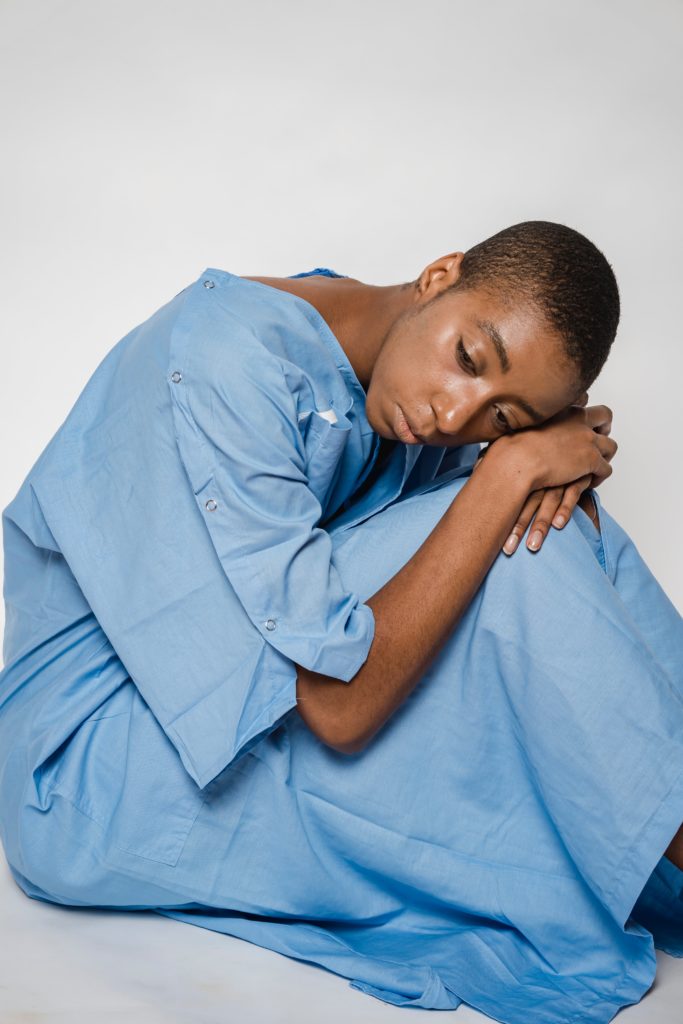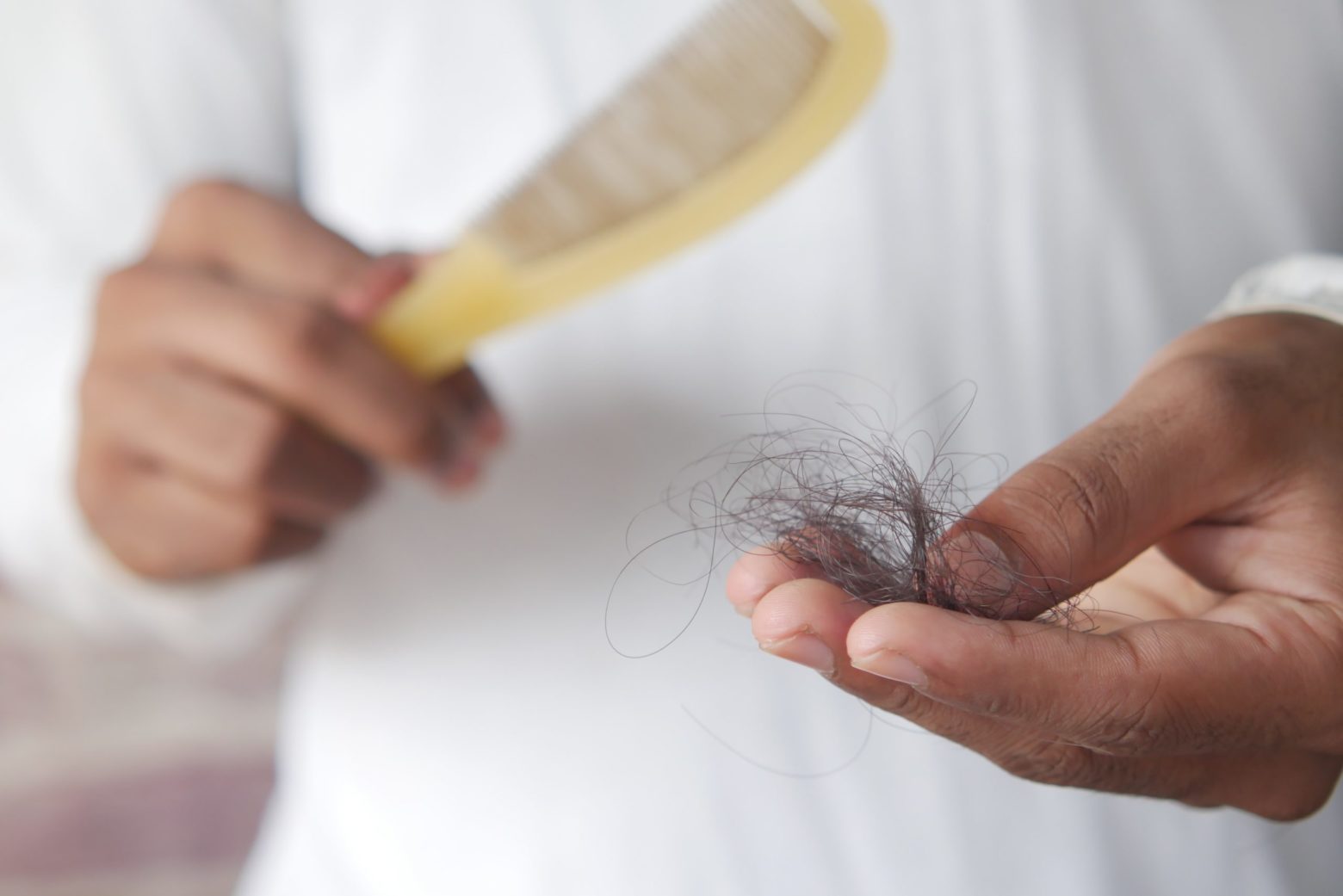August is National Hair Loss Awareness Month. Hair thinning and loss affects people of all backgrounds, for a number of reasons. And unfortunately, one of the main culprits behind this hair loss is alopecia areata, an autoimmune disorder. What’s worse, it’s a pretty common disease that can happen to anyone, even children.
What Is Alopecia?
Alopecia areata or “alopecia” is an autoimmune disorder that causes hair thinning and loss. When you have an autoimmune disease, your immune system is unable to tell the difference between your good cells and invasive, bad ones. As a result, it attacks healthy cells, which can cause disability and even death.
About Autoimmune Diseases
According to a report from the Cleveland Clinic, approximately one in 15 people has an autoimmune disease. There are a number of autoimmune disorders that range in severity. You may have heard of the more common ones, which include type 1 diabetes, rheumatoid arthritis and multiple sclerosis. But, rare autoimmune disorders such as Guillain-Barre syndrome or Kawasaki disease also devastate many in America. These diseases can present mild, moderate, and severe symptoms that can lead to disability.
Alopecia Causes
Doctors and other health professionals are still not exactly sure what causes alopecia areata, but they believe it may have much to do with your genetics and hormones.
Stress is another culprit behind the disease. Actress Viola Davis shared her experience with alopecia areata that developed due to stress. In an interview with Vulture, she says, “I woke up one day, and it looked like I had a Mohawk. Big splash of bald on the top of my head.” But luckily, upon realizing stress was the cause behind her hair loss, she learned how to manage her stressors through self-love.
More On Alopecia
Alopecia areata is a devastating disorder that affects men and women of all backgrounds. Many patients battle the stigma surrounding hair thinning and loss every day. Fortunately, more and more conversations about the disorder are happening. And as a result, this reduces the negative misconceptions surrounding this common disorder. Here are five facts that you should know about alopecia areata:
1.
Alopecia Is A Common Disorder

If you suffer from alopecia areata, you’re not alone. In fact, the National Alopecia Areata Foundation reports that nearly 7 million people in the United States are affected by some form of alopecia areata. And it carries a lifetime risk of 2.1 percent.
The disease is pretty common, but unfortunately, it’s not often discussed. Many men and women feel ashamed of their hair thinning and loss, not realizing they have a medical condition.
This problem especially affects men since many men experience hair thinning and loss due to age. But often, their hair problems are actually autoimmune disorders that should be treated by a doctor or health care professional.
2.
There Are Multiple Types Of Alopecia

There are multiple forms of alopecia areata, and each one presents differently. Symptoms can range from mild to severe depending on the type of alopecia diagnosed. The four types of alopecia areata include:
Alopecia areata incognita – causes hair thinning, mostly in young women. Its onset is typically sudden.
Ophiasis alopecia areata – causes hair thinning and loss around the sides and back of the head.
Alopecia areata totalis – the most commonly known form of alopecia. It causes patients to lose all of the hair on their heads.
Alopecia areata universalis – causes hair loss all over the head AND body.
3.
Many Celebrities Have Been Diagnosed With Alopecia
A number of celebrities have spoken up regarding their battle with alopecia areata or hair loss. Their bravery has helped many men and women with the disease feel confident enough to face their struggles as well.
Jada Pinkett Smith has openly admitted to struggling with alopecia. And when comedian Chris Rock made a joke about her being bald, her husband and actor Will Smith sprang into action to defend her. Of course, the altercation made international headlines, and Smith has since apologized for his behavior.
Naomi Campbell is another popular celebrity who suffered from hair thinning and loss. In an interview with the Evening Standard, the supermodel shared that she lost her hair due to excessive styling. But, she says, “I do take more care of my hair now, because I lost all of it with extensions,” Campbell said. “I am more careful, and I do different things.”
4.
Alopecia Presents Little to No Symptoms

It may be difficult to pinpoint whether you have alopecia areata because it doesn’t present many symptoms besides hair loss. Plus, there are a number of other medical conditions that can cause hair loss as well.
But according to Web MD, there are some ways to find out if you’re experiencing alopecia areata. Some of them include:
- Sudden hair loss, especially during the winter season
- Bald patches that develop on the skin and grow larger
- Your hair may regrow, then fall out in another area of the body
- Smaller bald patches that join to form larger ones
- Fingernails and toenails that become brittle and pitted
If you notice any of these signs, speak with your doctor to determine whether the hair thinning and loss you experience is alopecia areata or something else.
5.
Alopecia Is Incurable

Alopecia areata is an uncurable disease. But fortunately, there are ways to manage symptoms to keep hair loss at bay.
You can treat symptoms of alopecia areata through prescribed medications. There are a number of supplements that claim to treat alopecia areata, but many are not FDA approved. Consult with your doctor to explore which treatment options are safe to use.
Steroid injections are another popular treatment for alopecia areata. These anti-inflammatory drugs are typically injected into the scalp or other body parts.
You can also remedy alopecia areata through topical immunotherapy. This treatment involves inducing an allergic reaction in the patient to stimulate hair growth.
And of course, there are other common ways to reduce hair thinning and loss, such as oils and serums formulated for hair growth. Also, wigs and head coverings like hats and cute head wraps are a great way to help patients feel more confident in their skin.
